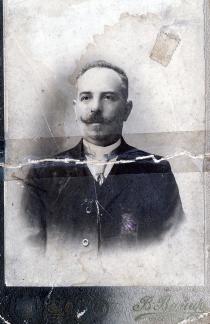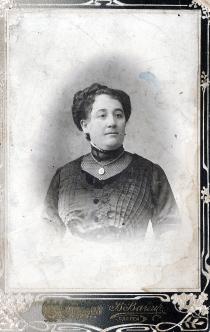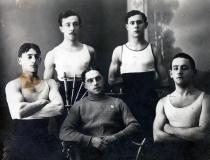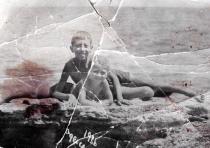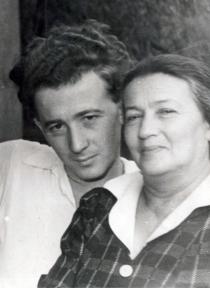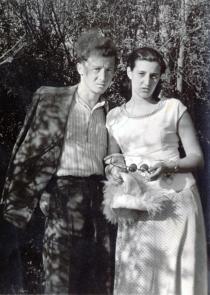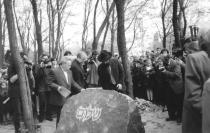This is a picture of my paternal grandmother Fania Dusman [nee Ginsburg]. The photo was taken in Odessa in 1904.
My grandmother Fania was born in Odessa in 1865. She spoke fluent Russian with no accent. She received a good education; she finished a grammar school. She didn't wear a wig or a kerchief, didn't observe the kashrut and didn't go to the synagogue. The family was wealthy, but my grandmother was used to work hard. She was a wonderful cook and could sew well. Fania took care of the house and housemaids and supervised my grandfather's sewing business.
My grandparents survived the Odessa pogrom of 1905. My grandmother told me that during the pogrom, when the thugs were in their street, Fedosey, our janitor, and all other Christian janitors from our neighborhood stood in front of our house with icons. It meant that there were no Jews in the house but only orthodox Christians. The Black Hundred went past this neighborhood and nobody suffered.
My grandfather died two weeks before I was born in 1930. After my grandfather's death my grandmother still lived with us. I remember how accurate she was. She got up early in the morning, made her bed and combed her hair. I never saw her or my mother with undone hair or wearing their nightgowns. My grandmother and I were close friends, and I often went to her room. She told me about life 'in the good old times', that is about how wealthy they lived before the October Revolution. She had a tin with candy in her room and always treated me to a candy. When my mother was angry with me I ran to my grandmother. My grandmother had a tough character, but she loved me dearly.
On Sunday, 22nd June 1941, all our family was at the summerhouse. At 7am we were ready to go fishing to the sea when all of a sudden the commandant of the recreation center came to see us. He said to my father, 'Moisey Isaacovich, it's an emergency situation - we are at war! [This was the start of the so-called Great Patriotic War.] My mother couldn't believe what she had heard. She even thought this commandant was just being a nuisance.
The bombing of Odessa began in the middle of July. In August the siege of Odessa began. Since we were the family of a military officer, the military authorities provided a truck for our family to evacuate during the last days before the occupation. My grandmother packed all her belongings, but we were told that about 20 other people had to fit into the truck and that we couldn't take that much with us. My grandmother refused to go if she couldn't take her luggage with her. My mother couldn't leave her alone, so we all stayed.
On 16th October the Romanians entered Odessa [during the Romanian occupation of Odessa]. On 24th October people were taken out of their houses to jail. In the evening we - my mother, my grandmother, my brother and I - were also taken to jail.
My brother perished there. My grandmother, my mother and I were released in December. After we had returned from jail, my grandmother fell into depression. One morning she didn't come out of her room. She hung herself on the chandelier. Our neighbor helped us to take her down. In this terrible time, when people were shot in the streets, my mother and Aunt Raya managed to find a person who made a coffin. They brought my grandmother to the Jewish cemetery in Slobodka. There was only a guard at the cemetery, an old Jewish man. He said, 'Madam, you're a holy woman. People don't bury the dead nowadays and dog's are gnawing at the bodies in the streets. Is this your mother?' My mother replied, 'No, this is my mother-in-law'. He was stunned.

